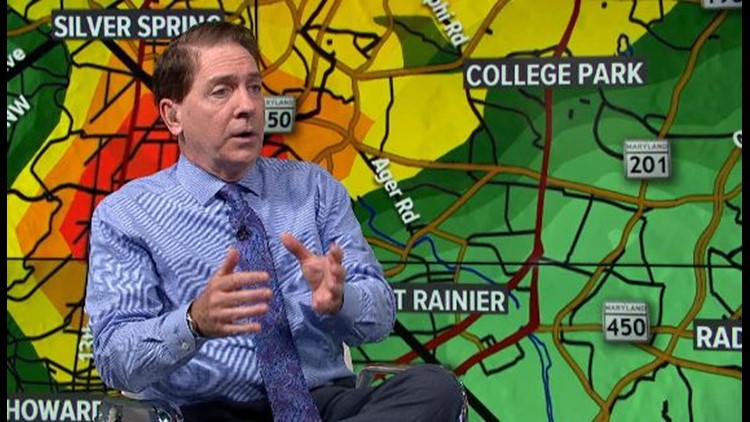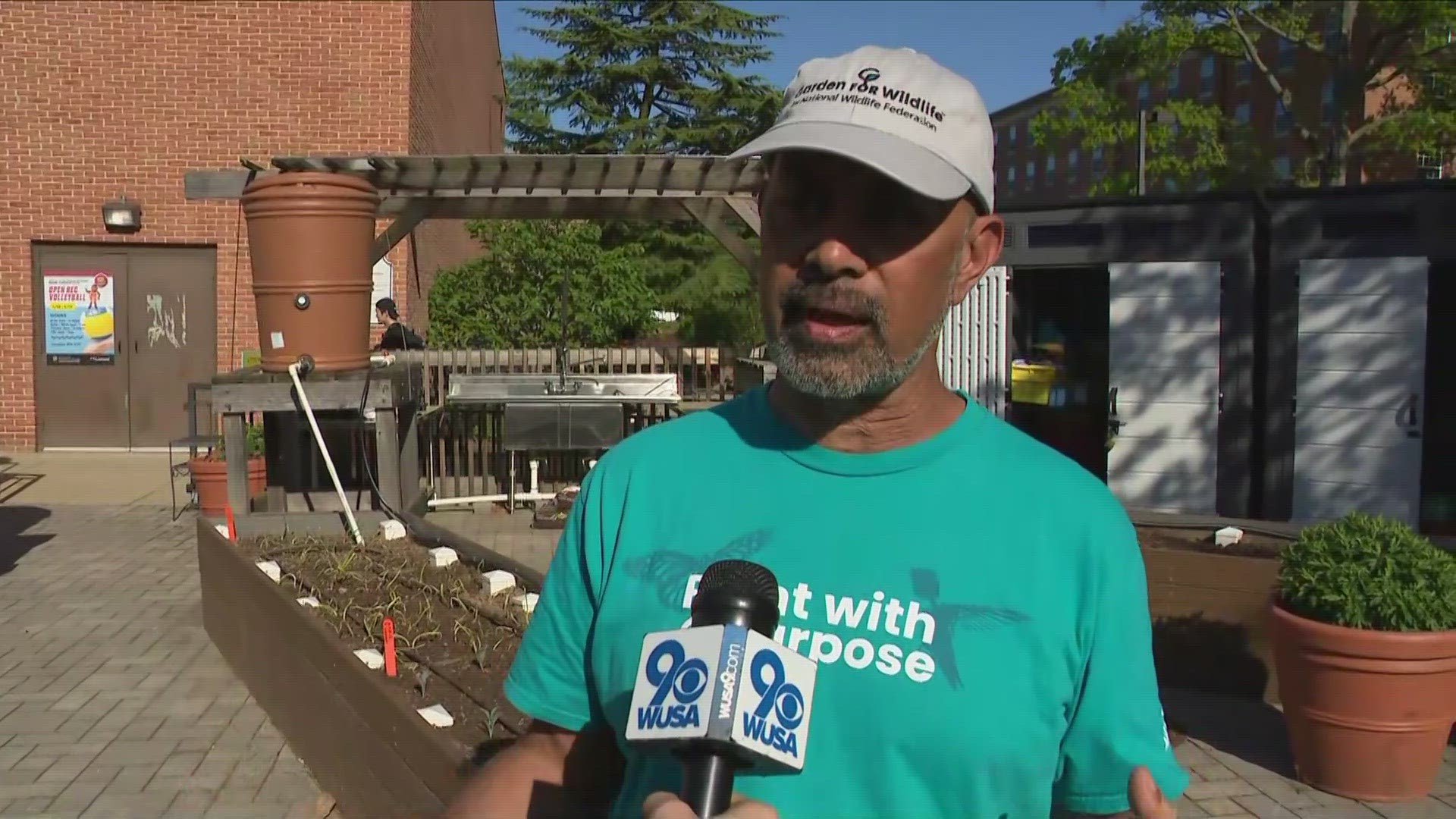College Park, Md. -- Students said they were confused by a site-specific tornado warning at the University of Maryland Monday that proved to be a false alarm.
The warning was issued by the privately-operated weather service AccuWeather, which provides its customers with customized alerts for highly specific locations.
RELATED: Tornado sirens go off at UMD
AccuWeather is a $100 million per year big business that provides its services to 245 of Fortune 500 companies, according to an INC Magazine profile.
One of AccuWeather's services is called SkyGuard which claims to be seven times more accurate for specific locations than the National Weather Service's public warnings. The service also claims to issue alerts at least 20 minutes before public alerts come out.
SkyGuard is tailored for industries ranging from manufacturing to transportation. The service is also marketed to educational institutions like the University of Maryland as well as the operators of major outdoor events such as stadium authorities.
"AccuWeather warnings are issued on a timely basis for all types of extreme weather – even when other weather organizations may fail to issue a warning at all. Advanced, customized site-specific warnings can impact profitability, help protect property and safeguard the lives of your customers or employees," AccuWeather's website says.
On Monday evening, as AccuWeather raised the alarm and triggered sirens and text alerts that went to tens of thousands on the University of Maryland campus, no warning was being issued by the National Weather Service.
No tornado materialized.
The University of Maryland declined to immediately reveal how much it pays for the private forecasting service.
WUSA9 meterologist Topper Shutt said he is concerned that the site-specific warning from a private company might be confused with broader public warnings issued by the National Weather Service.
The result he said could be a lack of public confidence in all severe weather warnings intended to protect the public.
"A couple of issues are going on here," Shutt said. "One, it was inaccurate. We did not find any rotation, period. Perhaps the larger issue than their inaccuracy is you need one voice when issuing warnings."
The University of Maryland invested heavily in a robust emergency alert system after the death of two sisters whose car was overturned when a tornado struck the campus September 24, 2001.
AccuWeather is widely regarded as a top forecaster. ForecastWatch published a three-year study of forecast accuracy, and reported that AccuWeather was the best provider of wind speed, precipitation and high-temperature forecasts at the 1 to 5 day range.
Accuweather released the following statement:
AccuWeather partners with dozens of universities all over the country and has worked with the University of Maryland for many years. In 2001, prior to the AccuWeather partnership, a tornado struck the University of Maryland campus which sadly killed two students. AccuWeather’s site specific warnings provide enhanced safety and situational awareness and they are customized to the location and needs of the university.
Warnings which AccuWeather provides to its customers routinely have different criteria than that which the government’s National Weather Service would use to generate warnings for the public. Customers utilizing our services can customize the warnings they receive based on their locations, concerns, operations and specific risk levels. Additionally, because of this customization, we are able to provide significant advance notice for dangerous weather, such as tornadoes – as we did in the Richmond, VA area on Monday (I’ll detail that further below).
As to specifically what happened on Monday, AccuWeather meteorologists have been accurately forecasting the impacts of Hurricane Florence for more than a week, being the first to correctly predict landfall in North Carolina, the first to forecast maximum rainfall totals of up to 40” and many other impacts from the storm. Our meteorologists were specifically concerned about the development of tornadoes across the Mid-Atlantic states on Monday afternoon as conditions appeared to be very favorable for rapidly developing dangerous tornadoes. On Monday morning, using weather radar and other tools, we saw storms rapidly developing strong rotation in parts of Virginia and issued tornado warnings for customers in the Richmond, VA area. There was at least one fatality from the tornadoes across Virginia. AccuWeather customers were provided at least 19 minutes of additional time, compared to government warnings, to prepare for these tornadoes based on our site-specific warnings. Our meteorologists noted the same atmospheric conditions that produced the tornadoes across Virginia moving north into Maryland during the late afternoon. As such, we were closely monitoring weather radar and other tools for signs of potential tornado development. Our expert meteorologists observed strong rotation and other radar signatures developing near the University of Maryland campus and based on the predefined criteria we have established with the University of Maryland, especially concerned with preserving life and preventing injuries from fast spin up tornadoes as occurred in the Richmond area just hours before, issued a tornado warning for the campus. Given the concentration of students, faculty, staff and visitors at a university with tens of thousands of people present on campus – the safety of people on campus is paramount.



